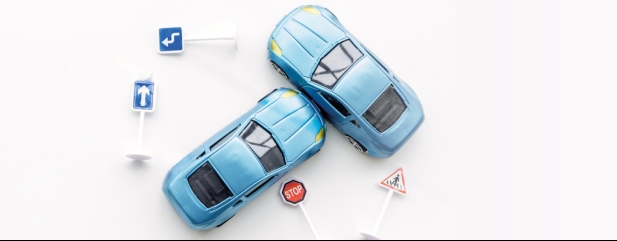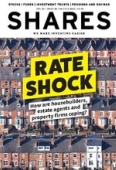Archived article
Please note that tax, investment, pension and ISA rules can change and the information and any views contained in this article may now be inaccurate.
Car premiums are rocketing, so why are insurance shares down?

While motorists have benefitted from falling petrol and diesel prices this year – helping to offset some of the increased cost of the weekly shop – many are finding their motor insurance quotes have gone through the roof, typically with no explanation.
According to the ONS (Office for National Statistics), car insurance prices have jumped more than 40% in the last 12 months, while the ABI (Association of British Insurers) reckons the average premium for private comprehensive motor cover was £478 in the first quarter, 16% higher than a year ago and the highest price since the fourth quarter of 2019.
However, The Guardian reports irate customers of Direct Line (DLG) and Saga (SAGA) have been quoted renewal prices ranging from 50% to 75% above their existing policy.
In theory, this should mean motor insurers are raking it in, yet their share prices tell a very different story with only Sabre (SBRE) in positive territory so far this year.
The companies claim not to be profiteering, and under FCA (Financial Conduct Authority) rules introduced in January last year they are banned from ‘walking up’ renewal prices, so what is going on?
As the ABI points out, the ‘walking up’ rules don’t mean a cap on prices, so the insurers are hiking quotes for new as well as existing customers to cover higher claims costs and volumes.
Higher prices for paint and materials as well as courtesy cars, plus delays in getting parts – in particular computer chips – which are affecting 40% of repairs, are all blamed for the rise in insurance prices.
The ABI estimates motor claims cost the insurance industry £2.4 billion in the first quarter of 2023, 14% more than the same period a year ago and the highest level since it started keeping track of the data a decade ago, with the cost of vehicle repairs up 33% to £1.5 billion, also a record.
If the firms were hoping analysts would back them up, they barely have a good word to say with Citigroup cutting its recommendation on Admiral Group (ADM) from ‘hold’ to ‘sell’ last month and JPMorgan putting Admiral and Direct Line on ‘negative catalyst watch’.
Then again, the companies have hardly helped themselves of late with Direct Line being told last week by the FCA it needs to go back through its records and compensate some customers for underpayments on written-off cars between 2017 and 2022, and Admiral’s UK insurance head Cristina Nestares selling off over £700,000 worth of the company’s shares in May.
Important information:
These articles are provided by Shares magazine which is published by AJ Bell Media, a part of AJ Bell. Shares is not written by AJ Bell.
Shares is provided for your general information and use and is not a personal recommendation to invest. It is not intended to be relied upon by you in making or not making any investment decisions. The investments referred to in these articles will not be suitable for all investors. If in doubt please seek appropriate independent financial advice.
Investors acting on the information in these articles do so at their own risk and AJ Bell Media and its staff do not accept liability for losses suffered by investors as a result of their investment decisions.
Issue contents
Feature
- The tiny company hoping to make it big after US breakthrough
- Car premiums are rocketing, so why are insurance shares down?
- Why there’s much more to Associated British Foods than Primark
- The UK-listed shares where investors might not be paid the full dividend amount
- Rate shock: How are housebuilders, estate agents and property firms coping?
Great Ideas
News
- Campbell Soup shares go cold as investors are disappointed over earnings progress
- Markets rally across the pond as cooling inflation supports soft landing scenario
- Thames Water: what its crisis means for water utility shares
- The UK stocks which could suffer if Odey Asset Management becomes a forced seller
- FirstGroup shares up 42% this year after string of good news
 magazine
magazine








